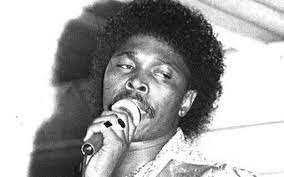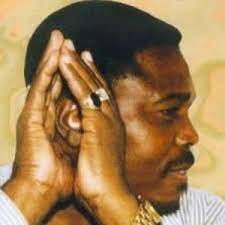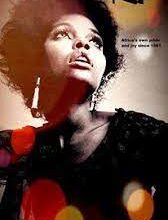Lovemore Majaivana Profile: – You Don’t Know What You’ve Got ‘Til It’s Gone
WALKING DOWN THE MEMORY LANE – LEST WE FORGET WALKING DOWN

Profile: Lovemore Majaivana – You Don’t Know What You’ve Got ‘Til It’s Gone

By Kamangeni Phiri 9/9/2022
Big Yellow Taxi, a timeless tune from the 1970s by Canadian-American singer, Joni Mitchell, could have been written for fans of Lovemore Majaivana, a legendary musician from Zimbabwe who is now retired.
Lyrics from the classic song, “Don’t it always seem to go, you don’t know what you’ve got ‘till it’s gone,” always come to mind whenever there are calls for Majaivana to come out of retirement and perform one last dance in his home city, Bulawayo.
It all started with a petition initiated by Majaivana’s fans in March 2011 on Facebook urging the singer to return to the stage.
The Petition was signed by over 2 500 fans.
Yet when the Ndebele cultural ambassador had turned up at the Large City Hall on 20 November, 2000 for what was projected to be a memorable show, the iconic singer received next to no attention.
“People didn’t turn out in their numbers for the show we organised and headlined by Majaivana. We made a huge loss,” promoter of the show, Majahawodwa Ndlovu, popularly known as Jeys Marabini, told local publication, Standard Lifestyle recently.
Majaivana, who was based in Harare at the time, had teamed up with musicians who traced their roots to Bulawayo.
The show dubbed Bulawayo Music Night featured Black Umfolosi, Sunduza, SIyaya, Paul Lunga and Jazz Impacto, Imbizo, Albert Nyathi and the main attraction, Majaivana.
“We did everything to make the show a success. We advertised, paid everything. Every artist was paid but people didn’t just come in their numbers. The hundreds who came through had a great time, but wished if only more could come, the same way they fill the city hall if it’s an artist from outside,” said Marabini.
Ironically, the snub he received in 2000 came only a few months after the late Oliver Mtukudzi had performed at the same venue and filled it to capacity, with Majaivana part of the headline acts.
Frustrated, the singer withdrew from the music scene in the same year and relocated to the United States where he is said to be a successful businessman and a pastor.
Yet, for a moment in the 80s, it appeared the yesteryear musician and exquisite dancer was destined to be the next big thing in folklore music. Majee, who has been in self-imposed exile for 20 years, helped make popular the Ndebele traditional dance, ingquzu, globally.
Calls for the artiste to come out of retirement for one last memorable dance on Zimbabwean soil are getting louder and desperate by the day.
But they are not a surprise.
The calls were precipitated by the coming back of another US-based prominent Zimbabwean artiste, Dr Thomas Mapfumo, in April, 2018. Mapfumo staged a memorable show at the Glamis Arena in Harare after spending 14 years in exile in the United States.
Majaivana’s fans have been pushing through Youtube, Twitter and Facebook, for their star to stage a similar comeback show at Bulawayo’s giant Barbourfields Stadium.
“Majee phenduka (come back) we need you. Some of us were young when you bid farewell now we relate to your songs. Those close to him please persuade him on our behalf. We miss you Lovemore, just make one appearance please,” said Zandile Tshuma commenting on a Majaivana documentary posted on Youtube.
A fan, Philip Moyo, pleaded with the music legend to stage one last show for his younger fans that did not have a chance to witness his live performance.
“One more dance with Bulawayo fans. It will be a dream come true to see you perform ko Ntuthu Ziyathunqa,” he said.
There has not been this much hullabaloo about a retirement since the late boxing legend, Kilimanjaro, real name Proud Chinembiri, hung his gloves in 1990.
The only difference is Majee quit music in 2001 when he was still on top of his game.
It was probably his last album, Isono Sami, a big hit then, which fueled the nostalgic feeling among his fans and made them demand that the singer come out of retirement.
Lovemore Majaivana was born Lovemore Tshuma on 14 December 1952 in Mambo Township in Gweru. He earned his stage name “Majaivana” because of his nimble footedness. A self-confessed school drop-out in pre-independent Zimbabwe, Majaivana chose music as a career. Music helped him take care of his siblings following the death of his father in a car accident in 1974.
Majee is the eldest child in a family of seven.
His family moved from Gweru to Bulawayo when the singer was aged four in the 1950s. His father, Reverend Tshuma, was Malawian born and a priest of a local church in Bulawayo while the mother, MaNyathi, used to sing in the church choir. Majee credits his mother for most of his songs.
“The songs didn’t come from me. They were always there before I was born. They were songs that were sung at ceremonial gatherings, so I only broadened them,” he said.
Lovemore discovered his singing talent at an early age when he was part of the church choir. But it was a struggle for him to convince his Christian parents to approve of his singing secular music. He therefore resorted to sneaking out at night for meetings and practice with the band in his formative years.
The first time that his parents recognised Lovemore’s talent was when he won the best vocalist slot at the Trade Fair in 1977. They immediately approved of his singing in the ‘world.’
As a kid he teamed up with his friend, Mtshapi, a neighbor and the two built their own first set of drums using plastics and empty cardboard barrels cut in half. With the makeshift drums, the boys performed at local Beer Gardens, Manwele and New Bhawa (New Beerhall) in Bulawayo. Adoring patrons paid a meager token fee in appreciation. A year later, at the age of 15, Lovemore was playing with a real set of drums.
He horned his drum playing skills when he joined a local band, the Hi-Chords. The band played at weddings (Macdonald Hall) the local Boys Clubs. Soon they were playing at bigger venues like the famous Valley Hotel, the Great Northern, Marisha Cocktail Bar and the likes.
After sometime, Majee left and relocated to Harare where he reinvented himself as a lead singer when he dropped playing drums. He started singing in nightclubs performing cover versions of Tom Jones and Elvis Presley songs.
Lovemore went back to Bulawayo where he joined The Echoes, another local band.
He then packed his bags again after four years and went back to the capital where he joined the Jobs Combination, a resident band at Jobs Night Club owned by late businessman, Job Kadengu.
It was with the Jobs Combination that Majaivana’s signature mbanqanga beat was born.
“When I came to Harare people like Thomas Mapfumo were already singing and recording. I couldn’t really sing in the language they were singing in because there was quite a whole host of them doing that. And from Matebeleland there weren’t any. The people who were recording from Matabeleland were doing it as accapella music and I wanted to put it into modern instrumentation. So I wouldn’t say I was the king of the mbanqanga music in Bulawayo but I would like to say I am the one who influenced a host of musicians from Matabeleland,” Lovemore said in a Youtube documentary produced by Pride Bongani.
The Jobs Combination also featured another legend, the late blind singer, guitarist and saxophonist, Fanyana Dube.
Majee cites Ngivulele, a track from his 1979 album Istimela as the sing that launched him to stardom. In the song, Majee asks for his mother’s blessings for a better job, house, car and a white wife.
““That song sold well, I went out and bought a house through the sales that I made. It will remain the song that touches my heart.”
Some misunderstandings within the band saw Majee leaving the group in 1984. He briefly worked as a milk salesman before retracing his steps back to Bulawayo in 1985 where he joined the Zulu Band, a group based in Victoria Falls that also featured two of his brothers.
His musical career was marked by struggles – the struggle to win the approval and endorsement of his own people, to have his music gain national appeal and even getting the financial rewards it deserved.
“My life has always been a sad one, I’ve been dealt blows below the belt,” Majaivana said. “First of all, it was the language that I sang in, it didn’t really bring me the fortune that one expects if you look at these other people that sing in the widely known languages. They get a better share of the profits.
“It’s partly why I left music. Whenever I went to get my cheque and I saw the other cheques of people that sang in a different language, they had better cheques than mine. Okay, you might say my music was not better than theirs, but fact is when we travelled to a lot of places like England, Sweden, Denmark and Canada we had full houses, but back home … it was on tribal lines.”
At the end of each show or tour, Majee would play his favourite track, Salanini Zinini (farewell my friends/relatives). The song was his way of thanking the fans for their support.
A prime Majee performed his last ingquzu dance in 2000 bidding farewell to a profession that brought him fame, segregation, misery and joy in equal measure.
Indeed, a good dancer knows when to leave the stage.


